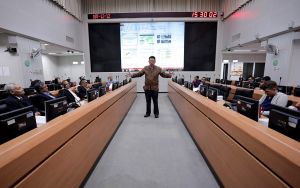
NCDR Secretary General Dr. LI Wei-Sen hosts a site visit to the Ventral Emergency Operations Center, one of three centers in Taiwan.
Disaster management professionals from Taiwan, the U.S. and 12 Indo-Pacific countries conducted a workshop December 11-14 to explore ways to integrate private, civil and public sectors into disaster response.
The Daniel K. Inouye Asia-Pacific Center for Security Studies (DKI APCSS) and the National Science and Technology Center for Disaster Reduction (NCDR) cohosted the workshop in Taipei, Taiwan titled “Integrating Private, Civil & Public Sector Disaster Response.”
Taiwan is considered a world leader in disaster response and already integrates private, civil, and public sector response in planning and execution. That experience was on display as Taiwan representatives shared their experience with other participants and cooperatively developed solutions for improving sector integration.

Lt. Col. Scott McDonald summarizes findings of the participants at the conclusion of the workshop and suggests a way forward.
The workshop was conducted in two parts. On December 7, DKI APCSS faculty facilitated a Taiwan only workshop, during which private, civil, and public sector actors cooperatively developed a list of capabilities that, with the help of public sector facilitation, could be deployed regionally in support of disaster response operations.
Then, on December 11, the three-day multilateral workshop began with Academic Lead Marine Lt. Col. Scott McDonald providing a vision for the participants, who were divided into seminars to discuss the plenary presentations and identify the key inhibitors and enablers for regional response integration and developed mitigation measures to map a way forward to increased capability. The DKI APCSS faculty team was comprised of Dr. Saira Yamin, Dr. Deon Canyon, Dr. Benjamin Ryan, and Army Lt. Col. Michael Burgoyne, whom each facilitated the seminar discussions.
On the second day of the workshop, NCDR Secretary General Dr. LI Wei-Sen hosted workshop participants for a tour of Taiwan’s Central Emergency Operations Center (CEOC) to demonstrate how Taiwan is attempting to activate a whole-of-society disaster response.
NCDR has also demonstrated integration of information systems built and managed by NCDR, the knowledge and expertise of Taiwan subject matter experts while building relationships with regional disaster management professionals through coordinated teamwork in seminar sessions;
Presentation of Taiwan’s exportable private, civil, and public capabilities to a plenary session as one of the culminating events of the workshop.
The DKI APCSS outreach team was led by Director Pete Gumataotao and the NCDR team was led by Dr. LI. The American Institute of Taiwan (AIT) helped facilitate the workshop and AIT Director, Mr. Brent Christensen (former Foreign Policy Advisor for DKI APCSS) provided opening remarks, along with Dr. HSU Yu-Chin, Deputy Minister, Ministry of Science and Technology and Director Gumataotao.
According to Lt. Col. McDonald, involvement of the private sector represents a vital next step in the evolution of humanitarian assistance that will go some way towards addressing the expanding global gap in capacity and resources, as well as increasing the ability of economies across the region to respond rapidly and cooperatively.
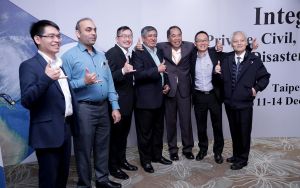
Workshop participants pose with DKI APCSS Director Gumataotao for a group photo at the conclusion of the workshop.
Participants expressed optimism that engagements such as this would increase the ability of regional actors to work together. Moreover, it comes at a time when the region is realizing there is room for this type of cooperation within and between economies.
“This type of engagement with the private sector is exactly what we are trying to work on in my country,” explained one participant.
In fact, it was a type of integration that all participants made headway on this week.
“At first I was very uncomfortable with the exercise methodology, but by Day 3, I realized how amazing the collective thought process had been,” said another participant.
The DKI APCSS is a U.S. Department of Defense institute that supports the policy objectives of the Office of the Secretary of Defense (OSD) and U.S. Indo-Pacific Command. The Center directly assists in developing key areas of OSD security cooperation in the Indo-Pacific region. The DKI APCSS mission is to build capacities, communities of interest, and develop and sustain relationships among security practitioners and national security establishments throughout the region. The Center educates, connects, and empowers security practitioners to advance Indo-Pacific security and generate meaningful policy outcomes through its regional outreach program.
NCDR was established as a government think-tank for natural disaster mitigation in July 2003 and in April 2014 was restructured to an administrative entity operated under the Ministry of Science and Technology. The mission is to promote and conduct activities related to research and development on disaster management; facilitate scientific knowledge and technological advantages; apply outputs of science and technology to disaster risk reduction and emergency preparedness; build international partnerships and conduct joint projects; collaborate with domestic research institutes; and provide relevant services related to disaster management.
For more photos, go to our Facebook photo album.


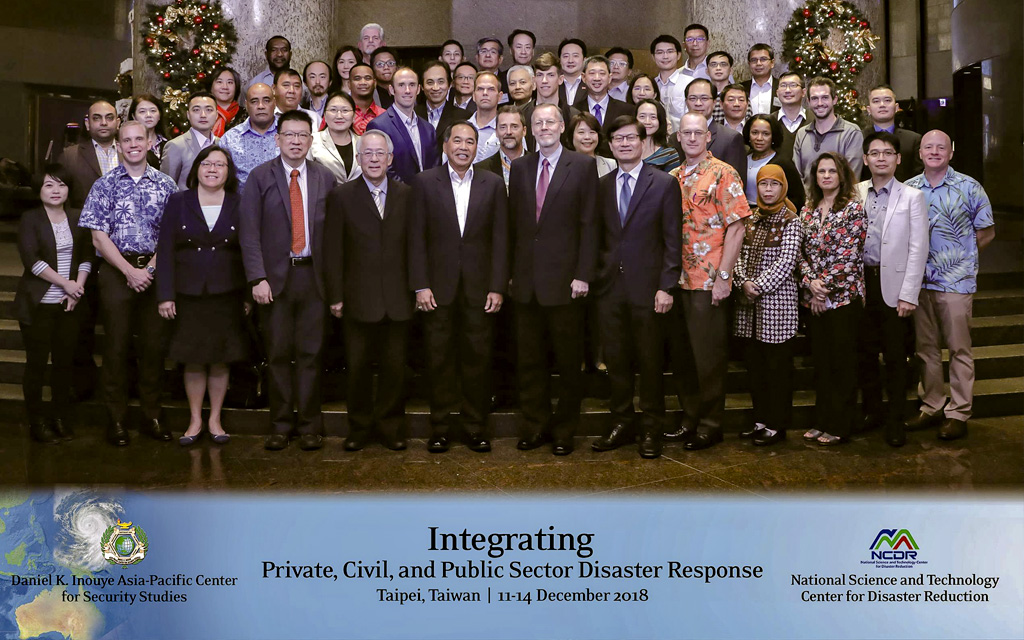
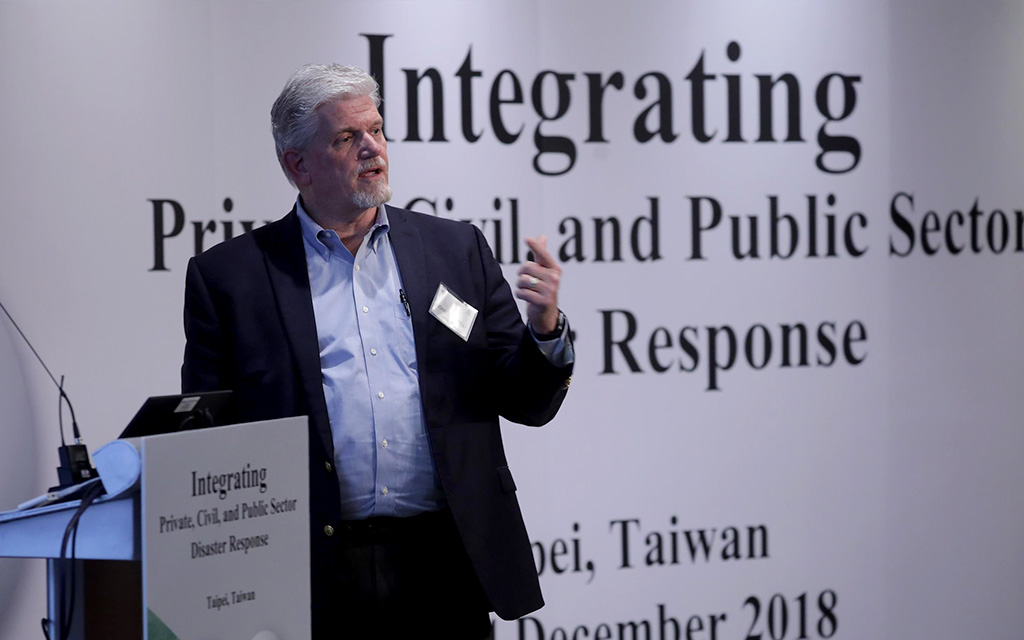
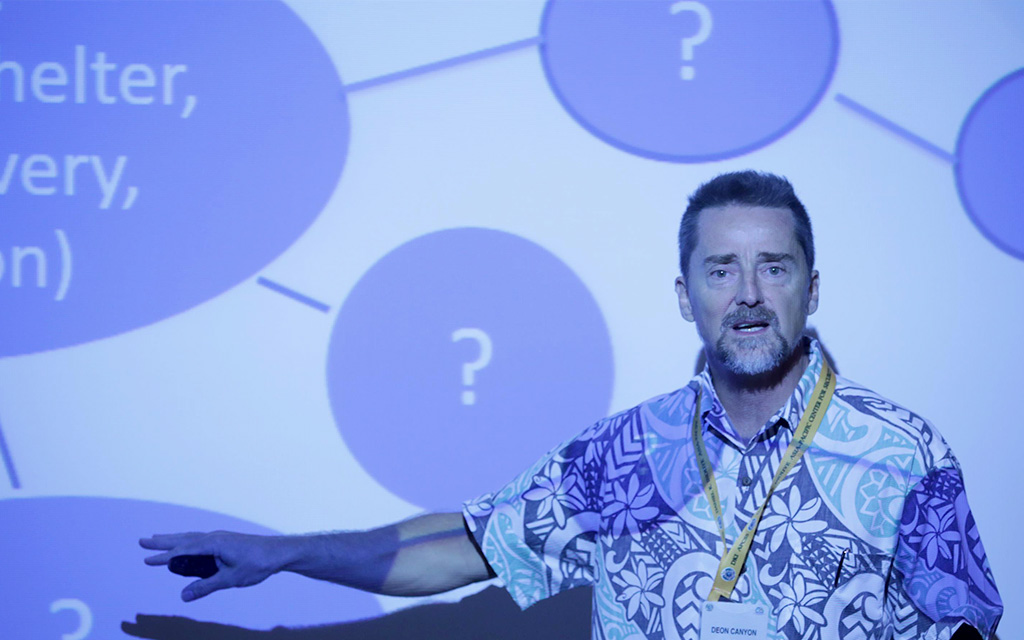

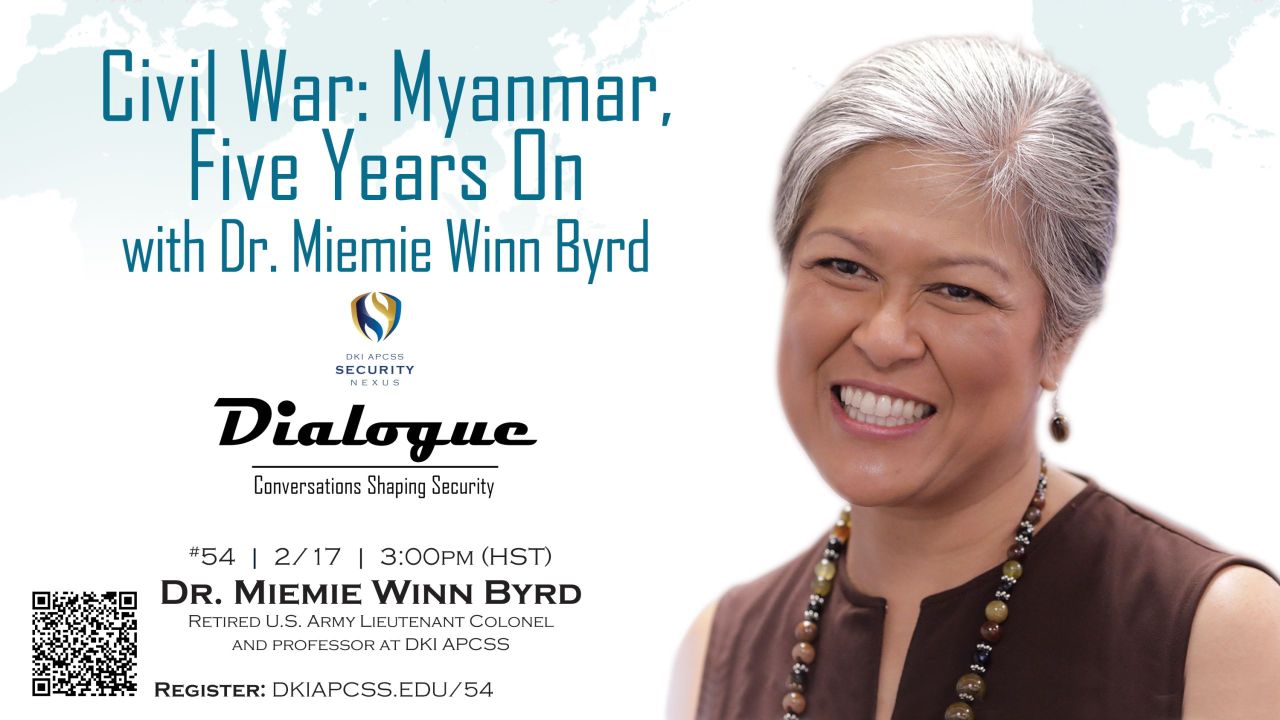





Leave A Comment